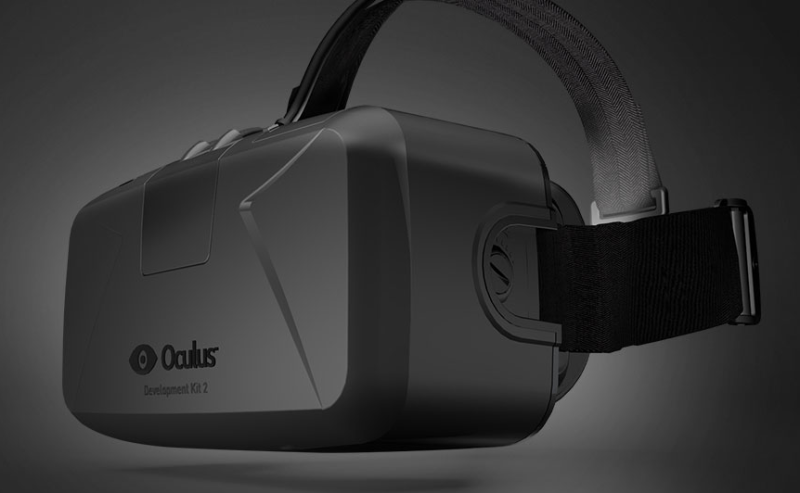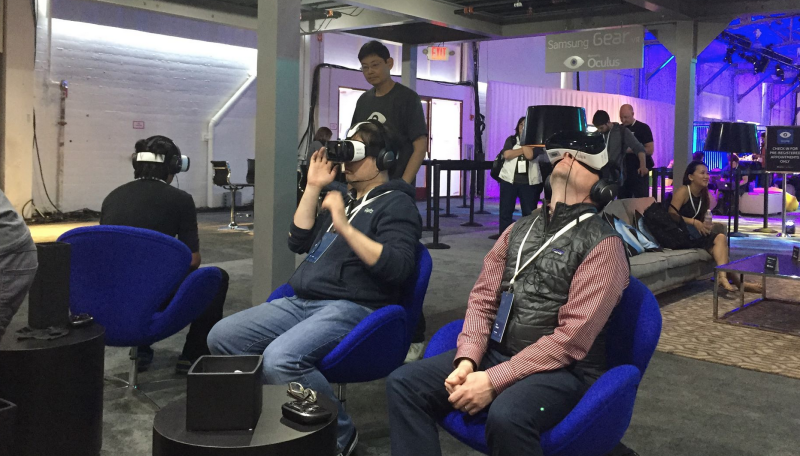Facebook’s Oculus: Just How “Disruptive” Will Virtual Reality Be?
- Fahad H

- Mar 30, 2015
- 3 min read

Of the many announcements and products showcased at Facebook’s developer conference (F8) last week, the one with the greatest potential is Virtual Reality (VR).
In the days since the event, several articles have raised the question: is VR yet another over-hyped novelty technology or is it in fact a new “platform” that will fundamentally change and reconfigure the digital world?
I tend to believe the latter. But it will ultimately depend on software developers and business models that emerge for VR — rather than hardware.
After wearing the Samsung Gear VR glasses for about 20 minutes at F8 it’s clear that the current state of VR is amazing and already commercially viable, though it still has some distance to go to fully realize the technology’s potential.
F8 speaker Michael Abrash, Oculus Rift’s chief scientist, said as much in his day two keynote. Abrash spent most of his time, in Ted-esque fashion, talking about the science and physiology of perception rather than potential use cases for VR. The theme was something like “reality is what your eyes and brain think it is.”

That was very interesting for about the first 15 or 20 minutes but then got a bit tired for me. I’m much more interested in the cultural, economic, psychological — even spiritual — implications of VR.
Among the works of pop culture and entertainment cited by Abrash as the inspiration for VR were the novel Snow Crash and the movies The Matrix and Avatar. Abrash spoke about The Matrix but without any acknowledgement of the dystopian and cautionary nature of the film.
At the risk of sounding like Debbie Downer, there’s a very dark side to VR. If you think the internet and video games today are addictive, just wait for VR games and VR alternative realities. Imagine a more immersive and compelling Second Life with real-time multi-player interactions — voilà The Matrix.
VR gaming is a no-brainer; it was the reason Oculus Rift was created. Gaming will be the way VR enters the market. But what’s fascinating to consider are other VR applications beyond gaming — in movies, music and sports, education and training, travel, psychotherapy and other fields.
There are already roughly eight or nine competitors coming out with headsets in the next year. Many of these will be quite affordable. Samsung’s Gear VR headsets are priced at $199 but require ownership of a Galaxy Note 4 or a Galaxy S6. It’s understandable though disappointing that the company is using VR as a tool to get people to buy its phones.

In many ways the Samsung Gear VR headset is the standard for the industry already. Image resolution is very good now and will only get better. Overall the hardware experience will improve fairly rapidly, driven by competition and technology advances.
As mentioned, my view of how broadly VR penetrates into the mainstream depends less on hardware advances than on the range and breadth of software experiences created for these devices. This will in turn depend on business models and financial incentives for developers and publishers. I can imagine an on-demand or “pay per view” market for individual titles or VR experiences that are downloaded directly to the goggles.
We’re also likely to see sponsored content, product placement (especially in games) and video pre-roll. Any ads in VR will need to be “native” and not interruptive. But this is easy to imagine. One can envision, for example, “outdoor ads” within real or imagined urban VR environments, or in-stadium ads for real brands in sports VR experiences.
There’s a great deal more to say about specific, hypothetical scenarios (e.g., virtual malls or stores). But these are very speculative at this point. What’s clear to me is that software and filmmaking are the keys to VR’s future, and whether it turns out to be simply an exciting new game distribution platform or something much more profound and transformative.




Comments